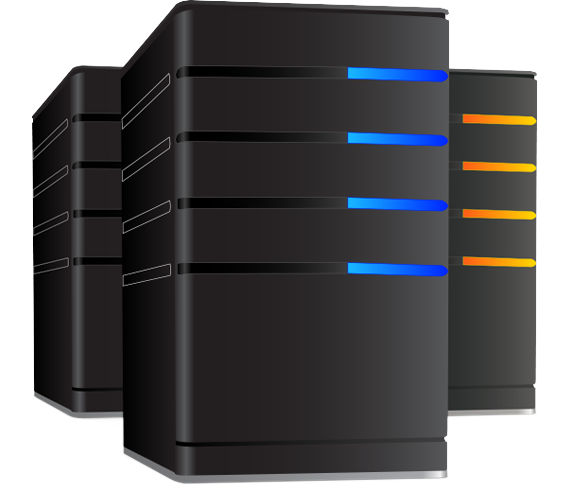Many hosting packages available today offer customers the option of either an HDD or an SSD hard drive. Most people opt for HDD for the simple reason that it’s the cheaper of the two. However, what many users don’t realise is that SSDs bring significant benefits to your website. In this post, we’ll look at the differences between two types of hard drive and explain why SSD is the best option.
What’s the difference between HDD and SSD hard drives?
A hard drive is the place where all a server’s data is stored. This includes the operating system, your website software and all your website data and content. Any software updates or website changes are written to that drive and when someone visits your site, the information on the drive needs to be read and processed.
On traditional HDD drives, that information is stored on thin, metal disks that spin at around 7,200 RPM. Using similar technology to a CD or DVD, information is written to it or read from it using a read/write head that hovers close to the disk’s surface.
The Achilles heel of the HDD drive is that it is built using moving parts. At 7200 RPM, a disk will spin almost 3.8 billion times in a year. Over time, this will eventually lead to wear and tear and, at some point, its mechanical parts will start to fail. Its other problem is that the speed at which data can be written and read is limited by how fast it can spin. Again, this is a limitation caused by it using mechanical technology that, in many respects, we first saw with the gramophone.
An SSD (solid state drive) works in a completely different way. It has dispensed with moving parts completely and, instead, stores data on interconnected flash memory chips. It can do everything that an HDD drive can do, however, as it is not reliant on how fast a disk can spin, it performs much quicker and without the risk of mechanical failure.
It is the speed and reliability of SSDs that make them more advantageous for hosting. In the next section we’ll explain the benefits these bring to website owners.
How SSD hosted websites benefit from increased speed
When you use an SSD hard drive, you increase the speed at which data can be written to and read from your server. This means that your website will be able to load faster on your user’s browsers.
The first benefit of this is higher ranking in search engine results. Since 2010, Google and other search engines have included website loading speeds as a factor in their search algorithms. In their pursuit of offering users ever better search results, they are rewarding faster websites because they offer a better user experience. The reward for higher ranking, of course, is more traffic.
As slower websites are being weeded out, you can check out how well Google thinks your website is performing by using Google’s PageSpeed Insights tool. This might give you an indication of whether SSD might be worth considering.
In addition to higher ranking, the faster loading also gives your visitors a better user experience. Today’s internet users expect instantly loading websites and have no patience with slow performance. If your site doesn’t load quickly, they’ll hit the back button and go elsewhere. A one-second delay can cost a business up to 7% of online turnover.
Whilst the speed of your hard drive may not be the only cause of a sluggish website, upgrading from HDD to SSD is one effective way to make it faster and reap the benefits.
How SSDs improve uptime
As HDDs contain moving mechanical parts, they are more at risk of failure than an SSD. Although HDDs are robustly manufactured, if yours fails, your site can go offline until a new drive is installed on the server and the data restored. If you don’t have your website backed up, you could lose all your data and put your entire online operations at risk. HDD failures are costly. If your business sells online, the longer you are offline the more custom you are losing. Your company’s reputation may also be damaged if no-one can access your site.
The lack of moving parts in an SSD means it is far less susceptible to failure. This makes it a far more reliable storage device. Indeed, it is estimated that an SSD can maintain data integrity for over two centuries.
Of course, if you want the best protection from downtime, your choice of web host is just as important as the type of hard disk you choose. You should look for a host that offers an uptime guarantee of 99.95% or higher, has backup (failover) servers available in case yours fails and protects you from hacking and malware infection.
HDDs Vs SSDs cost vs benefits
Newer, better technology always costs more. The price reflects the fact that the companies which developed SSD technology are still clawing back their R & D costs. However, the price differentials are not enormous. At VPS Extra, for example, you can get shared, cloud-based WordPress hosting on SSD for as little as £1.99 a month. Our VPS starter packages start at £2.99 for both SSD and HDD.
What’s important is whether you consider the small increase in price to be worth the benefits that SSD brings. Its speed and reliability are ideally suited to help websites rank higher and improve customer engagement, two crucial features of a successful website.
You also need to take into consideration that SSDs are taking over from HDDs. They are now used not just in web servers but in laptops, phones and many other devices. Eventually, HDDs will become obsolete.
Conclusion
At present, most web hosting packages offer you a choice between HDD and SSD drives. However, SSDs are superseding HDDs because they are a faster and more liable technology. Because of this, those who update to SSD hosting can benefit from higher search engine ranking, increased traffic, better user engagement and increased sales.
If you are considering SSD hosting, visit our homepage to check out our wide range of hosting packages and their SSD options.
 Worldwide (English)
Worldwide (English) Romania (Romanian)
Romania (Romanian) Spain (Spanish)
Spain (Spanish) Germany (German)
Germany (German) France (French)
France (French) Bulgaria (Bulgarian)
Bulgaria (Bulgarian) Indonesia (Indonesian)
Indonesia (Indonesian) Portugal (Portuguese)
Portugal (Portuguese) South Africa (Zulu)
South Africa (Zulu)





